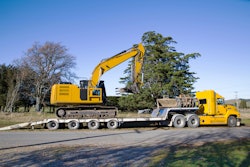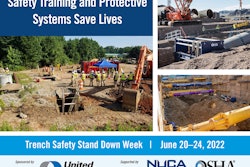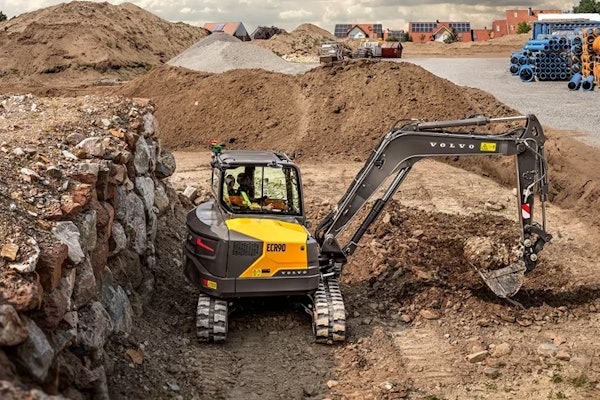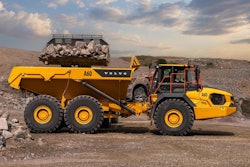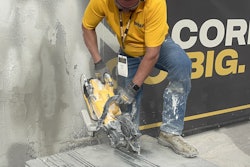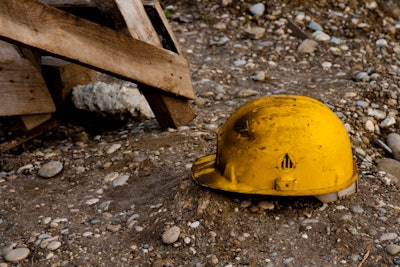
A New Jersey contractor who allegedly ignored warnings that a retaining wall could collapse is facing criminal charges for the death of a worker crushed by the wall.
Finbar O’Neill and his construction company, Onekey LLC of Hackensack, New Jersey, are charged with willfully violating OSHA regulations resulting in the August 3, 2017, death of Maximiliano Saban and the injury of another worker.
The federal violations carry a maximum fine of $500,000 against Onekey LLC. O’Neill faces a maximum sentence of six months in prison and a fine of up to $250,000.
“As alleged, OneKey, a construction company, and its principal, Finbar O’Neill, endangered the safety of their workers by disregarding regulations and taking shortcuts to sidestep their safety obligations,” said Damian Williams, U.S. attorney for the Southern District of New York. “This conduct led to the death of a worker on a construction site."
He said the charges should serve as a reminder to small businesses that failure to comply with safety regulations can lead to “unnecessary and preventable tragedy.”
The fatal accident occurred at 1 Duchess Avenue, a luxury apartment complex along the Hudson River in Poughkeepsie. Onekey, the developer of the site, was in the process of constructing multiple apartments in a group of buildings at the site when the incident occurred.
OSHA regulations require that structures that support construction loads be approved by a qualified designer. In addition, contractors are directed to control or eliminate any hazards and inform employees how to recognize and avoid unsafe conditions.
An investigation by OSHA concluded in 2018 that the wall was not designed by a qualified engineer nor were employees properly warned. A fine of $281,583 was imposed upon Onekey.
According to the Poughkeepsie Journal, attorney Scott Resnik, representing both O'Neill and Onekey, said in an email both defendants are "innocent ... and are intent on contesting them in court."
The OSHA citation is also on appeal.
Resnik further noted that the criminal “case results from a tragic accident, but the government’s attempt to criminalize this accident five years after its occurrence is also tragic and ill-conceived."
He added that both O’Neill and Onekey "have always prioritized worker safety and take nothing more seriously," saying both "look forward to vindicating themselves at trial."
Per the criminal case and the OSHA citation, O’Neill and Onekey allegedly failed to comply with OSHA regulations, which the criminal charges mirror.
According to court files, an engineering firm had designed a soil compaction plan involving a large quantity of dirt, called “surcharges,” on top of the sites of three future buildings. The plan was to move the piles onto the site of building “D”
However, Onekey and O’Neill allegedly failed to follow the designs completed by the engineer and the advice in terms of any safety precautions. Instead, a retaining wall was built to hold back the surcharge so work could begin on buildings “B” and “C.” The engineering firm was reportedly not consulted to determine if the wall could withstand the weight placed on it by the surcharge.
With workers near the wall, Onekey continued using heavy equipment to add dirt to the surcharge pressing up against the wall. The court documents state that crews working near the wall were not warned about the potential dangers it created. Workers were near the wall while tying rebar, pouring foundation, operating equipment, collecting personal items and tools and while walking through the job site.
As more dirt was added to the surcharge, a slope of 45 degrees at the edge of the soil surcharge was not maintained as per the engineer design plan.
According to the filing, several workers at the site reported to Onekey and O’Neill himself that the wall was not safe prior to August 3, 2017. Specifically, a site superintendent warned O’Neill that the wall could collapse and cause a fatal injury and suggested he consult an engineer. O’Neill was reportedly dismissive indicating that he did not care. No effort was made to address any potential issues at the wall.
On the day of the collapse, workers reportedly complained that construction machines were driving on top of the surcharge, adding dirt to it. Later the wall would collapse, leading to Saban’s death.
Saban and another worker, both employee of New Generations Masonry, a Connecticut-based subcontractor, were working on installing rebar on August 3, 2017. As the wall fell, both ran. Saban was unable to get away in time and died. The other worker was injured.
This is not O’Neill’s first alleged criminal action involving his business. According to the Westchester and Fairfield County Business Journal, he pled guilty to conspiracy to making unlawful payments to labor representatives and was sentenced to five years of probation. The case was part of a racketeering scheme involving contractors hiring non-union workers, paying union workers at below-union wages, and avoiding payments to union benefit funds.
U.S. Magistrate Judge Judith C. McCarthy is presiding over the case in Southern District Court in White Plains.



